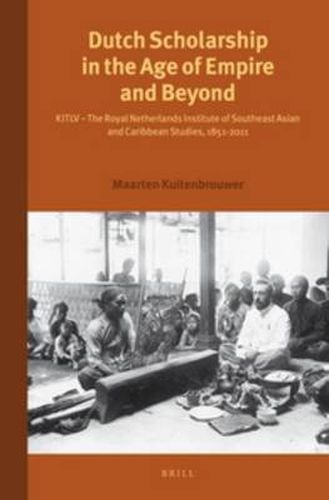Readings Newsletter
Become a Readings Member to make your shopping experience even easier.
Sign in or sign up for free!
You’re not far away from qualifying for FREE standard shipping within Australia
You’ve qualified for FREE standard shipping within Australia
The cart is loading…






How was the Royal Netherlands Institute of Southeast Asian and Caribbean Studies (KITLV), which at its inception in 1851 had fewer than a hundred members and only one part-time employee, able to flourish to become, around the turn of the twenty-first century, a modern, professional institute with 1,800 members with a staff of more than fifty employees. The Institute was founded with support from the highest political and official circles to gather scholarly information about the Dutch colonies in the East and West, not least to undergird colonial policy. KITLV played an important role in this, backed by the Ministry of Colonies and the business world. The Japanese occupation and decolonization led to a difficult process of adjustment for KITLV, which was concluded successfully. With its unique collections, publications, research and its office in Indonesia and involvement in the Caribbean, the Institute has an international reputation. This book is more than a report on 160 years of KITLV history. It is also a history of scholarly practice about the (former) colonies. These activities, and especially the publications of the institute and its prominent members, are measured against key terms such as orientalism and imperialism, universalism and relativism.
$9.00 standard shipping within Australia
FREE standard shipping within Australia for orders over $100.00
Express & International shipping calculated at checkout
How was the Royal Netherlands Institute of Southeast Asian and Caribbean Studies (KITLV), which at its inception in 1851 had fewer than a hundred members and only one part-time employee, able to flourish to become, around the turn of the twenty-first century, a modern, professional institute with 1,800 members with a staff of more than fifty employees. The Institute was founded with support from the highest political and official circles to gather scholarly information about the Dutch colonies in the East and West, not least to undergird colonial policy. KITLV played an important role in this, backed by the Ministry of Colonies and the business world. The Japanese occupation and decolonization led to a difficult process of adjustment for KITLV, which was concluded successfully. With its unique collections, publications, research and its office in Indonesia and involvement in the Caribbean, the Institute has an international reputation. This book is more than a report on 160 years of KITLV history. It is also a history of scholarly practice about the (former) colonies. These activities, and especially the publications of the institute and its prominent members, are measured against key terms such as orientalism and imperialism, universalism and relativism.